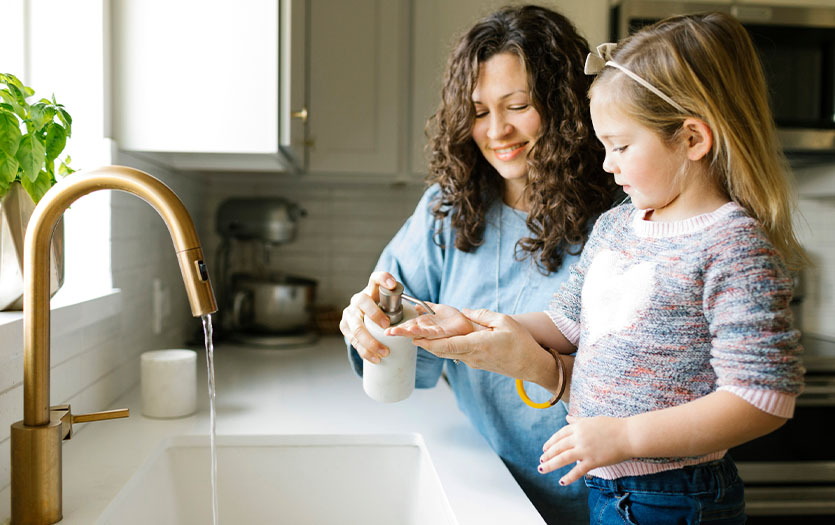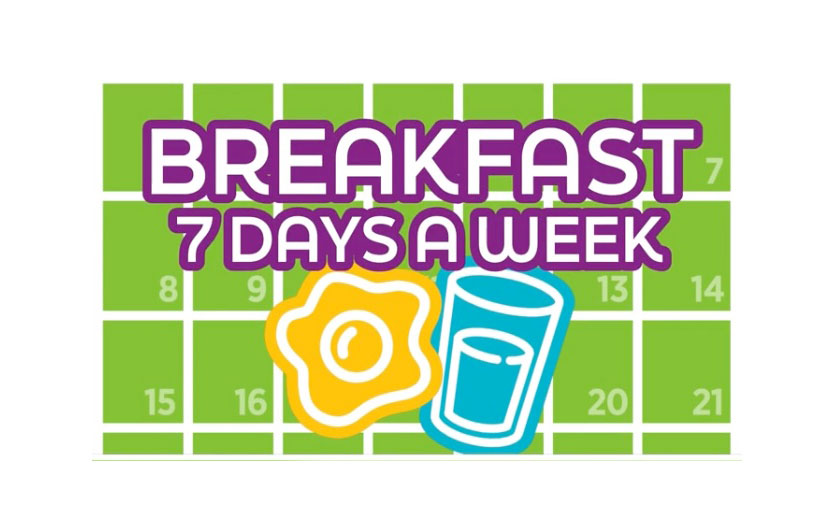
Autumn has arrived, and with it, comes more time spent indoors, which means more viruses and illnesses. But these bugs don’t have to derail your fall fun! We have preventive pointers that will keep your family picking pumpkins and enjoying the fall foliage, rather than down in bed.
Fight the flu
One of the best ways to keep influenza at bay is to get a flu shot, which prevents flu infection and its complications in most people. Even if the vaccine doesn't prevent the flu, it can reduce how severe the symptoms are and how likely you are to have complications.
Getting the flu vaccine can result in fewer days missed from work and fewer visits to a doctor for respiratory infections. It can also reduce the number of people who get complications, such as pneumonia. And the flu vaccine can help protect the babies of women who got the vaccine while they were pregnant.
Parkview offers flu shot clinics in several communities. You can find more information on these locations here. Parkview MyChart users with an established PPG – Primary Care provider, can schedule a flu shot appointment with your provider’s office via the app or desktop version. There are different ways to get a flu vaccine, so ask your doctor what is right for you.
Protecting little ones
It's impossible to protect your child from all contagious illnesses, but you can teach them healthy habits to help reduce your child's risk of infections. Here are a few lessons and precautions that will lessen their chances of getting ill:
- Cough into your arm and use a tissue to cover your nose and mouth.
- Wash your hands with soap and water. Germs spread when people touch their eyes, nose and mouth, so it’s important that we wash our hands thoroughly each time we use the toilet, blow our nose (especially if drainage gets on our hands), touch public surfaces and before we eat. Dry your hands thoroughly after washing them. Using hand sanitizer also kills germs that can cause illness.
- Don’t share hats, combs, toothbrushes, eating utensils or other personal items with other children. Generally speaking, it’s best not to share food, drinks or silverware with others.
- Only use only clean, dry paper towels and tissues. Don’t handle tissues or paper towels used by other children. Throw these tissues away when you’re done.
- Never touch another child’s blood, urine, stool or other drainage. Tell an adult caregiver if another child is bleeding or accidentally urinates or passes a stool.
- Children younger than age 2 need a caregiver's help to prevent the spread of germs. Wash your child's hands often and disinfect shared toys. If your child attends day care, closely review the policies about sick children and hygiene issues.
- If your child becomes ill, keep them out of daycare and away from other children until the contagious period has passed. If you are unsure about how long this should be, contact your doctor.
- Keep your child away from secondhand smoke. Smoke irritates the mucous membranes in your child's nose, sinuses and lungs, making infections more likely.
Prevention in public
Busy public restrooms, restaurants, airports and gathering places bring an increased risk of exposure to germs that can make you and your child ill. Use these tips to navigate these areas this cold and flu season:
- Avoid people with an obvious illness (such as a person who is coughing or sneezing). Don't be afraid to tell others, especially those you don't know, not to touch your child.
- Do not let your child eat or touch their mouth, eyes or nose until your child's hands are thoroughly washed with soap and water. Parents should also practice good hand hygiene.
- When dining out, make sure the utensils, table and general eating area are clean. Don’t be afraid to ask your server or a restaurant staff member to clean an area if you are in doubt.
- If your child is in daycare, make sure they have good hygiene practices in place and that they are followed. This includes regular sanitation of the facility’s toys, sanitary food preparation, proper bathroom procedures and cleaning, and procedures for when children become ill.
- Try to avoid public areas in certain situations. For example, your doctor may recommend keeping your newborn or child with health problems away from large crowds during outbreaks of disease. If you have to be in a public place, have children over age 2 wear a mask.
Get your flu shot, keep things clean and try to avoid hotspots for germs this fall. And if you need us, we’re here to help address any symptoms you might experience from an autumn illness.
Copyrighted material adapted with permission from Healthwise, Incorporated. This information does not replace the advice of a doctor.




